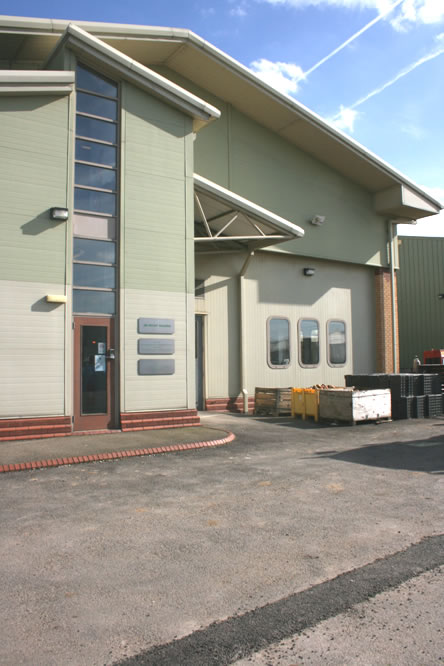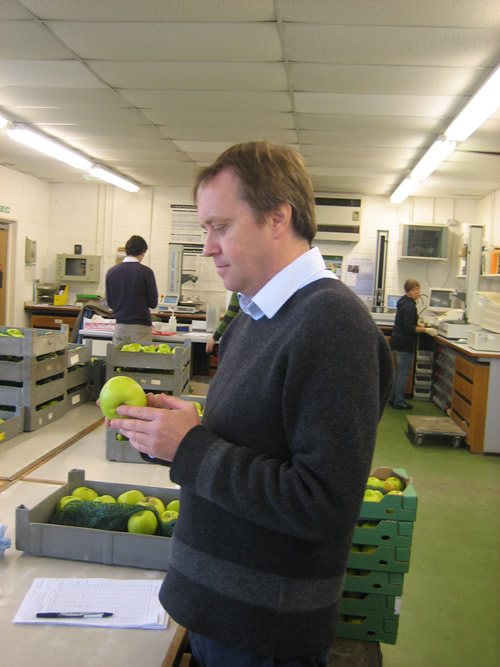
The Natural Resources Institute (NRI) is collaborating with East Malling Research (EMR), a Kent based research institute with an international reputation for horticultural research, to establish the Produce Quality Centre as a centre of excellence for UK based research on fresh produce quality.
Together the two institutes provide the widest range of expertise and the best facilities for post-harvest research in the UK.The Produce Quality Centre (PQC) benefits from the expertise and resources of both institutes, bringing together experts in the production, storage, marketing and supply of temperate, tropical and sub-tropical crops.
NRI has a strong socioeconomic capability that has traditionally focused on supply chains within and from developing countries, providing valuable tools for application to the developed world. The facilities for storage research at EMR are unique within the UK, having the capability to simultaneously investigate a wide range of storage environments and controlled atmospheres (in terms of oxygen and carbon dioxide) and at a semi-commercial scale, twinned with a wide range of technologies for quality assessment. The PQC has access to extensive laboratory facilities across both organisations, including NRI's growing capability in volatile profiling and texture analysis relating to consumer acceptability.
Improving quality of fresh produce and reducing waste
Much of the work at the PQC is funded through organisations such as the Department for Food and Rural Affairs (DEFRA), the Horticulture Development Company and the Potato Council (the latter two funded through a growers' levy) and the Waste Recycling Action Programme (WRAP). Trials are presently on-going at the PQC to develop improved storage protocols and to improve the quality of a wide range of produce: apples, pears, broccoli, cherries, strawberries, avocado, plums, mushrooms and potatoes.
The PQC has recently carried out an analysis of the fresh produce supply chain in the UK, focusing on the role of ethylene (a volatile produced by plant tissues that speeds up deterioration) and the potential of ethylene management to reduce waste. A particular research strength of the PQC lies in the capability to study post-harvest behaviour of produce in terms of physiology, biochemistry and molecular mechanisms. This is presently being exploited in research seeking to understand the development of storage disorders in apples, and sprout control in potatoes.
 The PQC provides expert help to the fresh produce industry
The PQC provides expert help to the fresh produce industry
In addition to publicly funded work, the PQC also provides independent expertise to the fresh produce industry. A recent example of this is that the PQC provided an independent test of the effects on strawberry shelf-life of ethylene adsorbing strips produced by the UK company It'sFresh! PQC trials demonstrated that this technology can extend strawberry product-life by two days, and as a result this technology has now been rolled out by Marks & Spencer.
Hugh Mowat, Agronomist for Marks & Spencer says: "The It'sFresh! technology has shown that strawberries and many other products can be marketed over longer periods in perfect condition. The implications will be far reaching in terms of greater waste reduction and sustainability benefits. It's a very exciting step forwards for the fresh fruit industry and we hope to extend the use of it into many more of our products".
NRI and EMR share the vision that the PQC will become a world-leading centre for research in fresh produce quality.

